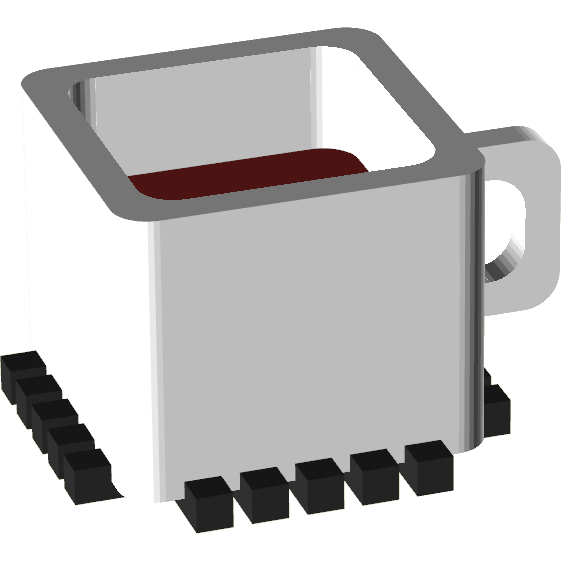Turn JavaScript stack traces into structured data.
Supports V8, SpiderMonkey, JavaScriptCore, Carakan, Internet Explorer, and more.
npm install stacklyn
Live demo is at https://stacklynjs.github.io/demo.
First and foremost, npm install stacklyn.
(and/or use one of the direct import methods listed below)
Here's some example usage code so you don't feel lost while I finish writing the docs:
import Stacklyn from "stacklyn";
try {
// some risky code here that might throw an error
} catch (error) {
// array of objects
const parsed = Stacklyn.parse(error);
// still an array of objects, but with source map info
const mapped = Stacklyn.map(parsed);
mapped.forEach(frame => console.log(frame.raw)); // log the sourcemapped stack frames
}- Stacktrace Parsing: Convert raw and hard to read stack strings into clean, structured data.
- Stacktrace Stringification: Turn a parsed stack back into a string.
- Stacktrace Conversion: Transform stack traces between different formats.
- Structured CallSite Info: Directly work with static data gathered from V8
CallSiteobjects. - Source Map Integration: Map minified or transpiled stack frames back to their original source files and lines for accurate debugging.
- Context Enrichment: Add valuable surrounding code context to each stack frame for deeper insights.
- Error Serialization: Make error properties enumerable for easier serialization and logging.
And best of all, supports most stack trace formats you'll come across!
Stacklyn V2 will add even more cool stuff! See the roadmap to know more.
 Chrome 3+ (V8)
Chrome 3+ (V8)Node.js (V8)
Electron (V8)
Deno (V8)
 Firefox 1+ (SpiderMonkey)
Firefox 1+ (SpiderMonkey) Safari 6+ (JSC)
Safari 6+ (JSC)Bun (V8-JSC Hybrid)
 IE 10+ (ChakraCore)
IE 10+ (ChakraCore) Edge Legacy (ChakraCore)
Edge Legacy (ChakraCore) Opera <15 (Linear B, Futhark, Carakan)
Opera <15 (Linear B, Futhark, Carakan) Netscape 7+ (Mocha / SpiderMonkey)
Netscape 7+ (Mocha / SpiderMonkey) Espruino (not kidding)
Espruino (not kidding)
Note
"Why do the logos look old?"
They show the first version that added stack trace support.
However, all versions after the ones marked with a + are supported too.
Stacklyn supports all kinds of imports!
-
As an HTML script tag:
(note: Stacklyn is automatically placed aswindow.StacklynorglobalThis.Stacklynin the global scope if you do this)<script src="https://cdn.jsdelivr.net/npm/stacklyn/stacklyn.js"><script>
-
For use in JavaScript code directly:
// 1. ES Modules import Stacklyn from "stacklyn"; // 2. CommonJS (Node only) const Stacklyn = require("stacklyn"); // 3. RequireJS require(["stacklyn"], function(Stacklyn){ // Your usage code here }); // 4. Web Workers importScripts("https://cdn.jsdelivr.net/npm/stacklyn/stacklyn.js"); // You can also refer to Stacklyn once imported as: Stacklyn; // Direct (works regardless of how you imported) window.Stacklyn; // Browsers globalThis.Stacklyn; // Modern JS runtimes (2020+) self.Stacklyn; // Web workers global.Stacklyn; // Node.js // And then use the methods as usual, for example: window.Stacklyn.parse(myError);
Note that with the way stacklyn is made, it works no matter what JS env you're running!
This means even in CSP'd environments (e.g. file://), you can still parse stack traces :D
(you cannot fetch local file information, best to use localhost for that)
- Docs: In progress
- Extension System (
Stacklyn.createExtension) - More Stack Formats (Jsish, Boa)
- Graal.js, Hermes, JS-Interpreter, Duktape, XS, NJS, QuickJS, and LibJS will be added to
parseV8as anenvironmentif statement.
- Graal.js, Hermes, JS-Interpreter, Duktape, XS, NJS, QuickJS, and LibJS will be added to
- Parse Bluebird extended stack traces
overwritemethod to change the default runtime stack format, accepts a callback function
We welcome contributors! If you've found a bug, had a suggestion, etc. Feel free to submit an issue or PR!
Stacklyn is licensed under the Apache-2.0 License, the full text is at LICENSE and a portion is located under every file.



